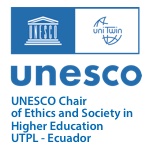The market economy and Christian thought
Abstract
Approach to the connection that exists between liberalism and Christianity from Duns Scoto's onto-theological perspective. Analysis that leads to establish Christianity as the antecedent of the secular State and explain its compatibility with the concept of limited government of liberal philosophy. This argument makes it possible to justify the decline of European culture and civilization. That it is possible for everything to stand and fall apart with religion. What causes a failed secularization process with serious consequences for the state and economic order.
Downloads
References
Beltran, Lucas (1982). La nueva economía liberal: un horizonte para la economía española. Madrid: Instituto de Economía de Mercado.
Harvey, David, Ana. Varela Mateos, and Ana Varela Mateos (2007). Breve historia del neoliberalismo. Cuestiones de antagonismo. Madrid: Akal.
Muralt, André de., and Valentín Fernández Polanco (2002). La estructura de la filosofía política moderna: sus orígenes medievales en Escoto, Ockham y Suárez. Fundamentos. Madrid: Istmo.
Negro, Dalmacio (2019). La Tradición de La Libertad. Madrid: Unión Editorial.
Nuez, Paloma de la (1994). La Política de La Libertad. 1994th ed. Madrid: Unión Editorial.
Rallo, Juan Ramón (2019). Liberalismo: los 10 principios básicos del orden político liberal. Barcelona: Deusto.
Röpke, Wilhelm., and Juan Medem SanJuan (2010). La crisis social de nuestro tiempo. 1a. ed. Madrid: El Buey Mudo.
Röpke, Wilhelm (1940). Civitas humana: cuestiones fundamentales en la reforma de la sociedad y de la economía. Biblioteca de la Ciencia Económica. Madrid: Revista de Occidente.
Copyright (c) 2021 ©️ Analysis

This work is licensed under a Creative Commons Attribution-NonCommercial-NoDerivatives 4.0 International License.








